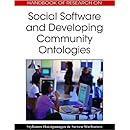
Obstacles to school innovation
December 22, 2020Open Schooling project https://www.openschools.eu/ has analyzed the obstacles of innovation in schools:
One of the biggest barriers to educational innovation is not the lack of great teachers or even the access to proper tools, it is the isolationist structure and dispersed nature of many schools and school authorities.
Tricks are acting as catalysts to the process:
Increase Mass– The more dominoes you have the longer the chain you can make. Be on the lookout for talent and get more of the right people in your school. The more innovative individuals you have in your school community the greater chance they will in uence each other.
Increase Density– Even having a lot of innovators might not guarantee a chain reaction if these people never get together. The closer these people are, the more likely they will be to share. Open days, workshops, and other in person events are great examples of moments of increased density. You will be amazed at the innovative energy produced by bringing the right people together in a closed space.
Increase Temperature– Temperature is really just a measurement of how fast molecules are bouncing off one another. Craft speci c times for staff sharing and exploration. The more opportunities you have for teachers to interact with other stakeholders, the more likely these innovative ideas are to move. Open the channels of communication and sharing in your community, mobilise local actors and encourage the transmission of ideas. Open to informal learning settings and industry. Involve more players from the out-of-school world in the process.
Increase Reflectivity– Even in a dense mass of radioactive material there are particles which stray outward, away from the other atoms.
The roadmap:

Cocreation biographies method application
December 22, 2020H2020 SISCODE project https://siscodeproject.eu/ has come out with very interesting deliverables looking cocreation and cocreation and innovation in policymaking settings. One method they use is cocreation biographies: “Co-creation Biographies are basically an in- depth biographic-interpretative methodology for analysing narratives of participants’ experiences in relation to the larger cultural matrix of society (Wengraf 2001). Through the combination of interviewing techniques, network analysis, and triangulation of data from the individual, structural and contextual level, co-creation processes are reconstructed from the first idea to their implementation. ” This method looks context of roles, context of functions, context of norms and context of structures in cocreation ecosystems at micro, meso and macro level. The report analyses all parts separately using a comparative approach, however interrleations within that ecosystemwere not revealed as could be done: “The four layers of the model can be considered separately, which helps to structure and analyze similar intervening factors in groups. In a following step, these factors can also be analyzed more deeply by elaborating on their interrelations and thereby visualizing the ecosystemic complexity as a whole.” (Kaletka et al. 2017)

Citizen Science, Education, and Learning: Challenges and Opportunities
November 9, 2020The paper from our efforts in COST action Citizen science in Eduation has come out in Frontiers in Sociology.
Citizen science is a growing field of research and practice, generating new knowledge and understanding through the collaboration of citizens in scientific research. As the field expands, it is becoming increasingly important to consider its potential to foster education and learning opportunities. Although progress has been made to support learning in citizen science projects, as well as to facilitate citizen science in formal and informal learning environments, challenges still arise. This paper identifies a number of dilemmas facing the field — from competing scientific goals and learning outcomes, differing underlying ontologies and epistemologies, diverging communication strategies, to clashing values around advocacy and activism. Although such challenges can become barriers to the successful integration of citizen science into mainstream education systems, they also serve as signposts for possible synergies and opportunities. One of the key emerging recommendations is to align educational learning outcomes with citizen science project goals at the planning stage of the project using co-creation approaches to ensure issues of accessibility and inclusivity are paramount throughout the design and implementation of every project. Only then can citizen science realise its true potential to empower citizens to take ownership of their own science education and learning.
https://www.frontiersin.org/articles/10.3389/fsoc.2020.613814/abstract

A cooperative design method for SMEs to adopt new technologies for knowledge management
October 28, 2020Finally our paper A cooperative design method for SMEs to adopt new technologies for knowledge management by Angela Fessi, Viktoria Pammer-Schindler, Kai Pata, Sandra Feyertag, Mati Mõttus, Jörgen Janus and Tobias Ley is out that describes our methodological approach of using an extended activity system approach in industrial settings.
http://www.jucs.org/jucs_26_9/a_cooperative_design_method
The activity system mapping table. https://tihane.files.wordpress.com/2020/10/activity-system-table.pdf
We started to develop the method already in the Learning Layers project where the activity system based mapping was done in the Norvegian clusters to identify gaps and opportunities of knowledge management.
Meanwhile, I have used the approach at the master level courses for several years requesting students to map the industrial settings.
Last year Anu Männisalu has used this data from industrial settings for her master thesis that revealed Opportunities and limitations in technology-based learning within the learning organization. https://www.etera.ee/zoom/75514/view?page=1&p=separate&tool=info








